Congratulations to the following Arts & Sciences faculty members on their promotion to the rank of Associate Professor with Tenure:
Jennifer Bhatnagar, Biology
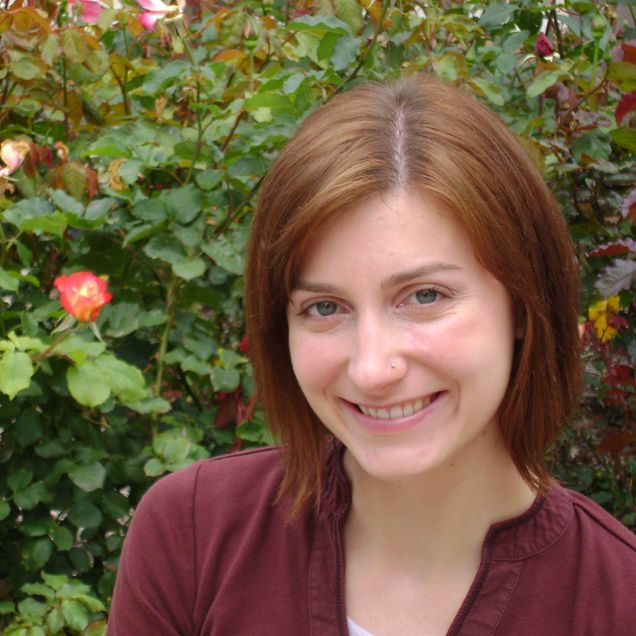
Professor Bhatnagar is a microbial ecologist who uses biochemical analysis and sequencing technologies to investigate how climate warming, pollution, and changes in land use affect soil microbial communities and the resulting impact on terrestrial ecosystems’ productivity and carbon-storage capacity. Supported through major grants from the US Department of Energy (DOE) and the National Science Foundation (NSF), she is a previous Peter Paul Career Development Professor, a recipient of her college’s Patricia McLellan Leavitt Research Award, and past chair of the Microbial Ecology Section of the Ecological Society of America. She has co-edited a laboratory manual and published a book chapter and over three dozen articles in leading science journals, including Research.
Solesne Bourguin, Mathematics & Statistics
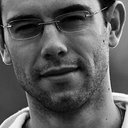 Professor Bourguin uses method development and analysis to research the central limits, dynamic behavior, convergence, distributional properties, and estimators of many types of random variables and stochastic systems – work with broad, practical applications in cosmology, data science, machine learning, and econometrics. He is the PI on a current Simons Foundation Research Award and a frequently invited conference presenter. He has published two book chapters and over two dozen widely cited articles in premier mathematical journals, including Annals of Probability.
Professor Bourguin uses method development and analysis to research the central limits, dynamic behavior, convergence, distributional properties, and estimators of many types of random variables and stochastic systems – work with broad, practical applications in cosmology, data science, machine learning, and econometrics. He is the PI on a current Simons Foundation Research Award and a frequently invited conference presenter. He has published two book chapters and over two dozen widely cited articles in premier mathematical journals, including Annals of Probability.
Alina Ene, Computer Science
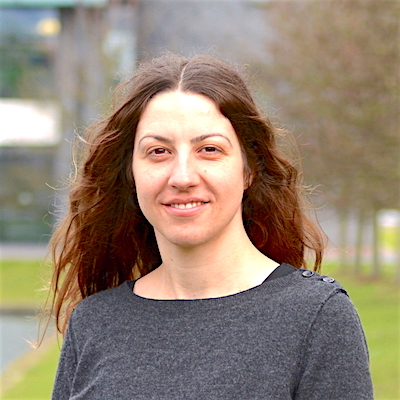 Professor Ene studies the design and analysis of algorithms, the mathematical aspects of combinatorial optimization topics (such as submodularity and graphs), and their applications to machine learning and computer vision. She is an NSF CAREER Award winner and the recent recipient of a Sloan Research Fellowship in computer science. A frequently invited lecturer, she has published seven articles in premier journals and over 40 refereed conference articles at prestigious algorithmic and machine learning venues including the Symposium on Theory of Computing and the Association for the Advancement of Artificial Intelligence.
Professor Ene studies the design and analysis of algorithms, the mathematical aspects of combinatorial optimization topics (such as submodularity and graphs), and their applications to machine learning and computer vision. She is an NSF CAREER Award winner and the recent recipient of a Sloan Research Fellowship in computer science. A frequently invited lecturer, she has published seven articles in premier journals and over 40 refereed conference articles at prestigious algorithmic and machine learning venues including the Symposium on Theory of Computing and the Association for the Advancement of Artificial Intelligence.
Carolyn Hodges-Simeon, Anthropology
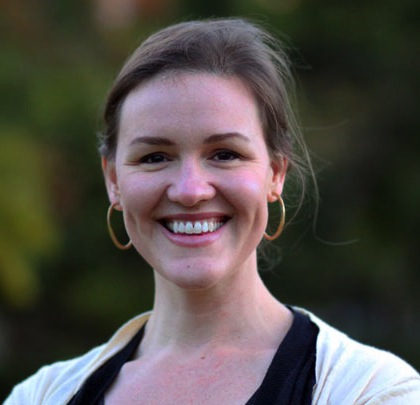 Professor Hodges-Simeon bridges the fields of evolutionary biology, behavioral ecology, and biomedical anthropology to investigate the evolutionary origins of gender differences and how environmental inputs during puberty and adolescence shape the development of boys and girls. Her research, which explores the relationship of attributes like voice, physical condition, and testosterone levels, combines lab-based experiments with fieldwork in Central America and is supported by multiple NSF awards. She has presented extensively at national conferences and colloquia and co-authored a book chapter and over 25 articles in leading science publications, including Scientific Reports.
Professor Hodges-Simeon bridges the fields of evolutionary biology, behavioral ecology, and biomedical anthropology to investigate the evolutionary origins of gender differences and how environmental inputs during puberty and adolescence shape the development of boys and girls. Her research, which explores the relationship of attributes like voice, physical condition, and testosterone levels, combines lab-based experiments with fieldwork in Central America and is supported by multiple NSF awards. She has presented extensively at national conferences and colloquia and co-authored a book chapter and over 25 articles in leading science publications, including Scientific Reports.
April Hughes, Religion
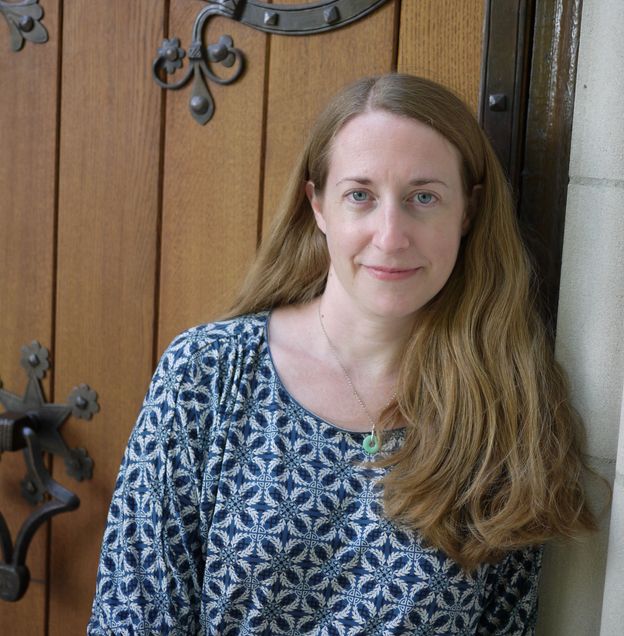 Professor Hughes is a scholar of medieval Chinese Buddhism whose work uses lenses of history, politics, and art – including Chinese Buddhist manuscripts and mural paintings – to understand religion within broader cultural and social contexts. A past recipient of BU’s East Asia Studies Career Development Professorship, she has authored a recent book, Worldly Saviors and Imperial Authority in Medieval Chinese Buddhism (2021), as well as articles in leading Asian art journals. She is her department’s director of undergraduate studies, an active member of the Association of Asian Studies and the American Academy of Religion, and a frequent presenter at national conferences on issues of art and religion.
Professor Hughes is a scholar of medieval Chinese Buddhism whose work uses lenses of history, politics, and art – including Chinese Buddhist manuscripts and mural paintings – to understand religion within broader cultural and social contexts. A past recipient of BU’s East Asia Studies Career Development Professorship, she has authored a recent book, Worldly Saviors and Imperial Authority in Medieval Chinese Buddhism (2021), as well as articles in leading Asian art journals. She is her department’s director of undergraduate studies, an active member of the Association of Asian Studies and the American Academy of Religion, and a frequent presenter at national conferences on issues of art and religion.
Melissa Kibbe, Psychological & Brain Sciences
 Professor Kibbe explores the basic building blocks of cognition, using experiments and computational modeling to better understand how children and adults store, organize, and represent information, how they use those representations to guide behavior, and how cognitive systems interact during complex tasks. A frequent conference presenter, she is supported by grants from the NSF and NIH and has published over two dozen articles in top psychology journals, including Cognition and Developmental Psychology. She is additionally a past recipient of her college’s Templeton Award for Excellence in Student Advising & Mentoring.
Professor Kibbe explores the basic building blocks of cognition, using experiments and computational modeling to better understand how children and adults store, organize, and represent information, how they use those representations to guide behavior, and how cognitive systems interact during complex tasks. A frequent conference presenter, she is supported by grants from the NSF and NIH and has published over two dozen articles in top psychology journals, including Cognition and Developmental Psychology. She is additionally a past recipient of her college’s Templeton Award for Excellence in Student Advising & Mentoring.
Dan Li, Earth & Environment
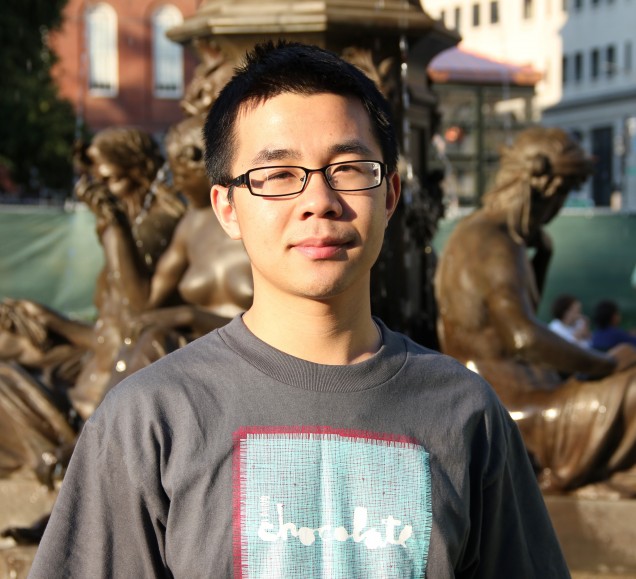
Professor Li, is an expert in environmental fluid mechanics, using a range of tools including multi-scale numerical modeling, high-resolution simulations, and satellite remote sensing to assist in climate modeling and to better understand land-atmosphere interactions and the impact of climate change on urban areas. Supported by numerous grants from the DOE, the National Aeronautics and Space Administration (NASA), and NSF, he is a past recipient of the Humboldt Fellowship for Experienced Researchers. He has presented at dozens of national and international conferences and authored or co-authored over 90 articles in leading science publications, including the Journal of Applied Meteorology and Climatology.
Wen Li, Astronomy
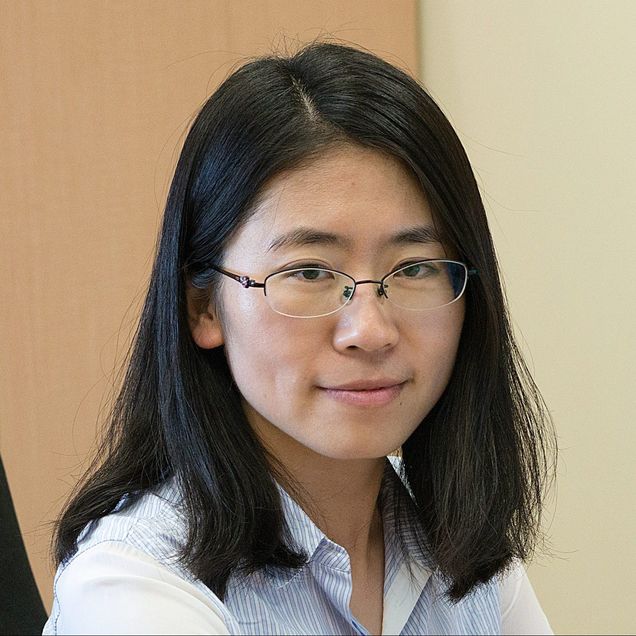 Professor Li studies space plasma waves around earth, employing satellite observations and computational modeling to create simulations that test notions of wave generation, propagation, and particle interaction. Her recent research has used modeling and simulations to explore the nature of the aurora around Jupiter. She is an NSF CAREER Award winner, an American Geophysical Union Fellow, and a past Sloan Research Fellow in physics, and her work is supported by major grants from NASA and NSF. She has delivered dozens of invited talks at national and international conferences and published eight book chapters and nearly 200 refereed articles in her field’s leading publications, including Geophysical Research Letters.
Professor Li studies space plasma waves around earth, employing satellite observations and computational modeling to create simulations that test notions of wave generation, propagation, and particle interaction. Her recent research has used modeling and simulations to explore the nature of the aurora around Jupiter. She is an NSF CAREER Award winner, an American Geophysical Union Fellow, and a past Sloan Research Fellow in physics, and her work is supported by major grants from NASA and NSF. She has delivered dozens of invited talks at national and international conferences and published eight book chapters and nearly 200 refereed articles in her field’s leading publications, including Geophysical Research Letters.
Kristin Long, Psychological & Brain Sciences
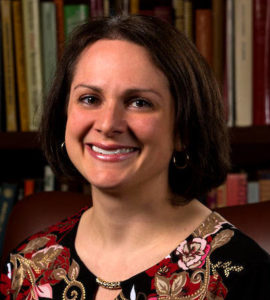 Professor Long focuses on the cultural and family aspects of childhood illness and disability and on health disparities in autism diagnosis and treatment. She has additionally worked to expand family-based psychosocial care for children with chronic illnesses to include their siblings. Supported by multiple major grants from the NIH, she received the Society of Pediatric Psychology’s Donald K. Routh Early Career Award last year and was the inaugural recipient of BU’s Graduate Women in Science & Engineering Mentor of the Year award. She has delivered over 60 conference presentations and published over 40 scholarly papers in prestigious psychology journals, including the Journal of Pediatric Psychology.
Professor Long focuses on the cultural and family aspects of childhood illness and disability and on health disparities in autism diagnosis and treatment. She has additionally worked to expand family-based psychosocial care for children with chronic illnesses to include their siblings. Supported by multiple major grants from the NIH, she received the Society of Pediatric Psychology’s Donald K. Routh Early Career Award last year and was the inaugural recipient of BU’s Graduate Women in Science & Engineering Mentor of the Year award. She has delivered over 60 conference presentations and published over 40 scholarly papers in prestigious psychology journals, including the Journal of Pediatric Psychology.
Alexander Sushkov, Physics
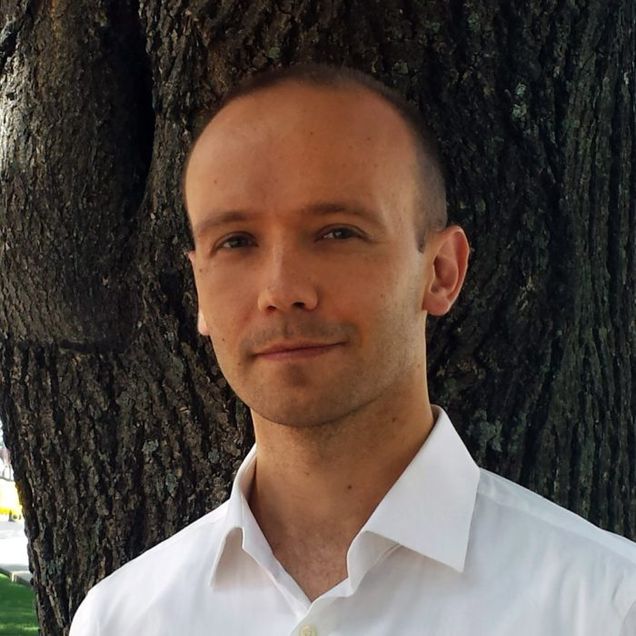 Alexander Sushkov is a scholar of experimental physics, developing new quantum tools for precision measurements and employing them to address key problems in fundamental and applied science. Additional research utilizes nuclear magnetic resonance techniques in the search for dark matter. A past Sloan Research Fellow, he is PI or co-PI on several major grant awards from DOE, NSF (including a CAREER Award), and the Templeton Foundation. He is a frequent presenter at national and international conferences and has published a book and over 50 refereed articles in premier journals, including Science and Nature Physics.
Alexander Sushkov is a scholar of experimental physics, developing new quantum tools for precision measurements and employing them to address key problems in fundamental and applied science. Additional research utilizes nuclear magnetic resonance techniques in the search for dark matter. A past Sloan Research Fellow, he is PI or co-PI on several major grant awards from DOE, NSF (including a CAREER Award), and the Templeton Foundation. He is a frequent presenter at national and international conferences and has published a book and over 50 refereed articles in premier journals, including Science and Nature Physics.
We also congratulate the following 14 CAS faculty members who were promoted to the rank of Full Professor in April 2022:
Arianne Chernock, History
Arianne Chernock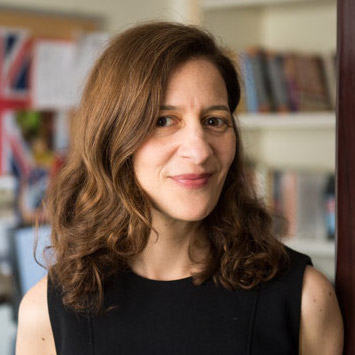 is a scholar of modern Britain (post-17th century) whose work examines aspects of feminist thought, gender history, and the monarchy. Recognized internationally among the leading historians in her field, she is a member of the Royal Historical Society and the author of two books: 2019’s The Right to Rule and the Rights of Women: Queen Victoria and the Women’s Movement and 2010’s Men and the Making of Modern British Feminism, which received the John Ben Snow Foundation Prize from the North American Conference on British Studies. She has published three book chapters, and numerous journal articles and essays, including a forthcoming entry in The New Cambridge History of Britain.
is a scholar of modern Britain (post-17th century) whose work examines aspects of feminist thought, gender history, and the monarchy. Recognized internationally among the leading historians in her field, she is a member of the Royal Historical Society and the author of two books: 2019’s The Right to Rule and the Rights of Women: Queen Victoria and the Women’s Movement and 2010’s Men and the Making of Modern British Feminism, which received the John Ben Snow Foundation Prize from the North American Conference on British Studies. She has published three book chapters, and numerous journal articles and essays, including a forthcoming entry in The New Cambridge History of Britain.
Aaron Garrett, Philosophy
Aaron Garrett 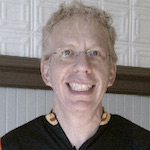 is an expert in the history of early modern philosophy (1600–1800), focusing on ethics, political philosophy, method, metaphysics, and the philosophy of art and film. A scholar in the writings of Baruch Spinoza and David Hume, he is a frequently invited speaker at universities in America and Europe, and is the former editor of History of Philosophy Quarterly and the inaugural editor in chief of The Journal of Modern Philosophy. He is a past recipient of the CAS Neu Family Award for Excellence in Teaching and has authored three books, edited seven others—including the Routledge Companion to Eighteenth Century Philosophy—and published dozens of journal articles, reviews, and encyclopedia entries.
is an expert in the history of early modern philosophy (1600–1800), focusing on ethics, political philosophy, method, metaphysics, and the philosophy of art and film. A scholar in the writings of Baruch Spinoza and David Hume, he is a frequently invited speaker at universities in America and Europe, and is the former editor of History of Philosophy Quarterly and the inaugural editor in chief of The Journal of Modern Philosophy. He is a past recipient of the CAS Neu Family Award for Excellence in Teaching and has authored three books, edited seven others—including the Routledge Companion to Eighteenth Century Philosophy—and published dozens of journal articles, reviews, and encyclopedia entries.
Walter Hopp, Philosophy
Walter Hopp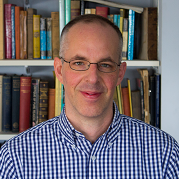 is an expert in the philosophy of perception and knowledge, integrating phenomenological (experience and consciousness) approaches with the philosophy of mind and epistemology. He is coeditor of Husserl Studies, the leading research journal devoted to the writings of German phenomenologist Edmund Husserl, and has authored two well-received books, including 2020’s Phenomenology: A Contemporary Introduction, along with 7 book chapters, 15 journal articles, and 5 book reviews and encyclopedia entries. He is associate chair of philosophy and a past recipient of the CAS Templeton Prize for Student Advising and Gitner Award for Distinguished Teaching.
is an expert in the philosophy of perception and knowledge, integrating phenomenological (experience and consciousness) approaches with the philosophy of mind and epistemology. He is coeditor of Husserl Studies, the leading research journal devoted to the writings of German phenomenologist Edmund Husserl, and has authored two well-received books, including 2020’s Phenomenology: A Contemporary Introduction, along with 7 book chapters, 15 journal articles, and 5 book reviews and encyclopedia entries. He is associate chair of philosophy and a past recipient of the CAS Templeton Prize for Student Advising and Gitner Award for Distinguished Teaching.
Malika Jeffries-EL, Chemistry
 Malika Jeffries-EL focuses on the development of organic semiconductors and their use in optical and electronic devices—research that has resulted in numerous novel advances, including the design of new blue light–emitting material. An elected fellow of the American Chemical Society, she is associate editor for the Journal of Materials Chemistry C, has published over 40 widely cited articles in leading science journals, and has delivered over 100 lectures domestically and abroad. She is a past NSF CAREER Award winner, and her research has been consistently supported through grants from the NSF. In addition to her scholarly work, she is associate dean of the Graduate School of Arts & Sciences.
Malika Jeffries-EL focuses on the development of organic semiconductors and their use in optical and electronic devices—research that has resulted in numerous novel advances, including the design of new blue light–emitting material. An elected fellow of the American Chemical Society, she is associate editor for the Journal of Materials Chemistry C, has published over 40 widely cited articles in leading science journals, and has delivered over 100 lectures domestically and abroad. She is a past NSF CAREER Award winner, and her research has been consistently supported through grants from the NSF. In addition to her scholarly work, she is associate dean of the Graduate School of Arts & Sciences.
Sanjay Krishnan, English
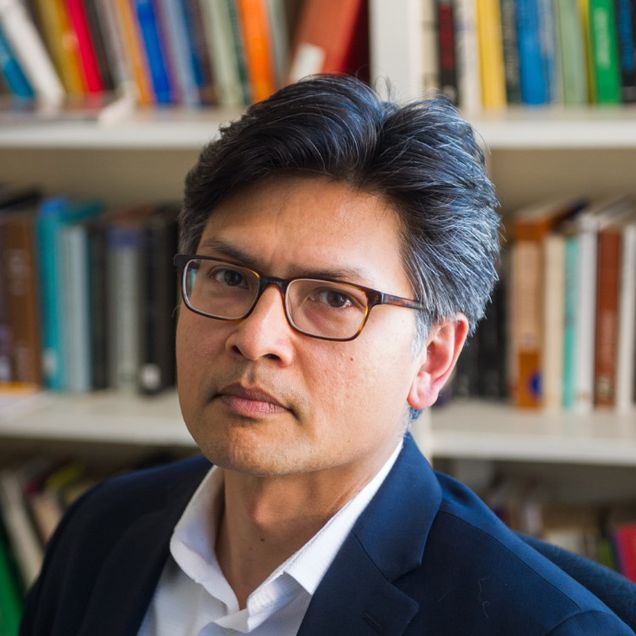 Sanjay Krishnan, is a scholar of English-language postcolonial literature from the Caribbean, Africa, and Southeast Asia, as well as globalization and the history and theories of the novel as a genre. He has published two widely praised books—most recently, V. S. Naipaul’s Journeys: From Periphery to Center (2020)—along with 3 book chapters, 40 conference papers, and 8 articles in top literary studies journals. A third book, on the challenge of world literature, is forthcoming. A past recipient of major fellowships from the National Humanities Center in North Carolina and the Mellon Foundation, he is a frequently invited lecturer and has delivered talks in South Africa, Trinidad, Singapore, and Hong Kong.
Sanjay Krishnan, is a scholar of English-language postcolonial literature from the Caribbean, Africa, and Southeast Asia, as well as globalization and the history and theories of the novel as a genre. He has published two widely praised books—most recently, V. S. Naipaul’s Journeys: From Periphery to Center (2020)—along with 3 book chapters, 40 conference papers, and 8 articles in top literary studies journals. A third book, on the challenge of world literature, is forthcoming. A past recipient of major fellowships from the National Humanities Center in North Carolina and the Mellon Foundation, he is a frequently invited lecturer and has delivered talks in South Africa, Trinidad, Singapore, and Hong Kong.
Ashley Mears, Sociology
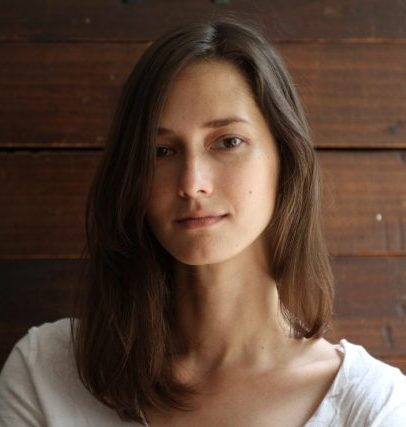
Ashley Mears specializes in gender studies and economic sociology, focusing on the intersection of culture and markets and the commoditization of beauty and glamor. She has emerged as a nationally recognized scholar in sociological literature, authoring two acclaimed books, including 2020’s Very Important People (VIP): Status and Beauty in the Global Party Circuit. She has also published nine book chapters and more than a dozen articles in top peer-reviewed journals, including American Sociological Review (where she is an editorial board member) and Socio-Economic Review, exploring the impact of race, gender, and class inequalities on culture. She is a past recipient of the Best Publication Award from the American Sociological Association’s Body & Embodiment section. Her work has been funded by the National Science Foundation (NSF) and the Marion and Jasper Whiting Foundation.
Sean Mullen, Biology

Sean Mullen is an evolutionary biologist who uses genomic tools to study the origin and maintenance of species diversity. He has garnered significant attention in his field for seminal research on speciation genomics and the adaptive evolution of butterfly wing color pattern and mimicry. Recent work has focused on the role ecological interactions play in shaping adaptive diversification among neotropical adelpha butterflies. His research has been supported by major NSF grants, and he has published over 40 articles in top-tier biology journals, including Evolution, Nature, and Molecular Biology and Evolution.
Stephanie Nelson, Classical Studies

Stephanie Nelson is a scholar of Greek and Roman epic works (particularly those of Hesiod, Homer, Virgil, and Ovid), Greek comedy and tragedy, ancient philosophy, translation, and the works of James Joyce. Recognized internationally among the leading academic voices in the classics, she has authored three widely praised books, most recently, Aristophanes’ Tragic Muse: Tragedy, Comedy, and the Polis in Classical Athens (2016), with a fourth volume exploring James Joyce’s Ulysses and Homer’s The Odyssey in development. She has published seven book chapters, delivered numerous invited lectures and conference papers in the United States and abroad, and won the CAS Neu Family Award for Excellence in Teaching and Susan K. Jackson Award for creating community.
Michael Prince, English
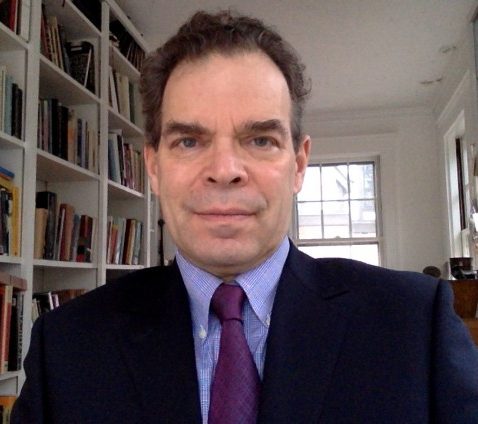
Michael Prince specializes in 18th-century British literature, particularly fiction and the novel, as well as rhetoric and composition. His scholarship examines how literary texts respond to debates of that period in Britain over moral virtue, the existence of God, the nature of human thought, and the possibility of human freedom. He has published three acclaimed books, including 2020’s The Shortest Way with Defoe, which won that year’s Walker Cowen Memorial Prize for the best book in 18th-century studies. A regularly invited speaker at national and international conferences, he has also authored a book chapter and numerous book reviews, editorials, and articles for leading literary journals.
Kim Sichel, History of Art & Architecture
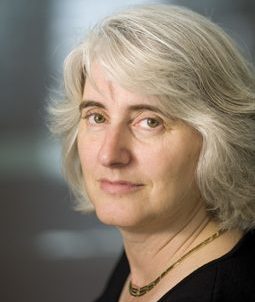
Kim Sichel is an art historian who explores European and American modern art, focusing specifically on the history of photography. A past department chair, she has written two well-reviewed books, including Making Strange: The Modernist Photobook in France (2020), in addition to an edited photobook, six book chapters, and numerous exhibition catalogs examining from aerial photography to early works of African American photographers. Her work has been supported by the Samuel H. Kress Foundation, Radcliffe Institute for Advanced Study at Harvard University, and the National Endowment for the Humanities. In 2020, the College Art Association named her one of the 20 most prolific PhD advisors in art history.
C. Allen Speight, Philosophy

C. Allen Speight provides philosophical explorations of art, literature, and religion through the lenses of German romanticism and idealism. Recognized among the nation’s leading scholars of the philosopher Georg Wilhelm Friedrich Hegel, he has written two books and coauthored or coedited seven more, including 2020’s The Future of the Philosophy of Religion, in addition to over 50 journal articles and book chapters. He is a past Fulbright Professor at Leuphana Universität Lüneburg in Germany and a Berlin Prize Fellow of the American Academy in Berlin. He has twice won BU’s Undergraduate Philosophy Association’s Excellence in Teaching Award, and serves on numerous editorial advisory boards and as a manuscript referee for Cambridge University Press and the Journal of the History of Philosophy.
Susanne Sreedhar, Philosophy

Susanne Sreedhar, examines early modern political thought—namely the relation of 17th-century British thinker Thomas Hobbes’ writings to foundational issues (including natural right, civil liberties, civil disobedience, and toleration) and their relevance to contemporary public policy, as well as how other philosophers of that era treat gender, sexuality, and marriage. She has authored an acclaimed book, Hobbes on Resistance: Defying the Leviathan, with another volume exploring Hobbes’ thinking on sexual morality in production. A frequent conference speaker, she has published 24 articles and book chapters and is a past recipient of the CAS Neu Family Award for Excellence in Teaching and the Outstanding Mentor Award from BU’s Undergraduate Research Opportunities Program. She is also codirector of the Mentoring Project for Pre-Tenure Women Faculty in Philosophy.
James Uden, Classical Studies

James Uden researches and writes about Latin literature and the transformation of Greek and Roman ideas in later eras, particularly the 18th and 19th centuries. He has produced seminal scholarship on Roman satire and first-century CE Roman cultural history, authoring two books, including 2020’s Spectres of Antiquity: Classical Literature and the Gothic, 1740–1830, with a third book in development (funded by a New Directions grant from the Andrew W. Mellon Foundation) exploring medicine and literature in the Roman Empire. He has published six book chapters and seven book reviews. He is a past Peter Paul Career Development Professor and winner of the CAS Gitner Award for Distinguished Teaching and sits on the editorial advisory board for Cambridge University Press.
We also congratulate the following CAS faculty members who were promoted with modified titles in September 2022
 Rachel Abercrombie, CAS, Earth & Environment, is an expert in geophysics. Her scholarly work addresses earthquake mechanics and the use of seismology to measure, model, and further understand the mechanisms involved in earthquakes. She has published numerous widely cited articles in the top geoscience journals and is actively engaged in research funded by the US Geological Service and the National Science Foundation. She has had leadership roles on the Scientific Earthquake Advisory Committee and at the Southern California Earthquake Center and the Seismological Society of America. She was recently elected a fellow of the American Geophysical Union. She has been promoted to research professor.
Rachel Abercrombie, CAS, Earth & Environment, is an expert in geophysics. Her scholarly work addresses earthquake mechanics and the use of seismology to measure, model, and further understand the mechanisms involved in earthquakes. She has published numerous widely cited articles in the top geoscience journals and is actively engaged in research funded by the US Geological Service and the National Science Foundation. She has had leadership roles on the Scientific Earthquake Advisory Committee and at the Southern California Earthquake Center and the Seismological Society of America. She was recently elected a fellow of the American Geophysical Union. She has been promoted to research professor.
 Carlos Martinis, CAS, Astronomy, studies the phenomena, processes, and physics in the earth’s high upper atmosphere and ionosphere, connecting to weather and the solar wind. He and collaborators stationed all-sky imagers at “magnetic conjugate” points in the northern and southern hemispheres (points on the earth joined by the same magnetic field line) to obtain powerful data sets for upper atmosphere studies and to provide “ground truth” for NASA satellites. He has been promoted to research associate professor.
Carlos Martinis, CAS, Astronomy, studies the phenomena, processes, and physics in the earth’s high upper atmosphere and ionosphere, connecting to weather and the solar wind. He and collaborators stationed all-sky imagers at “magnetic conjugate” points in the northern and southern hemispheres (points on the earth joined by the same magnetic field line) to obtain powerful data sets for upper atmosphere studies and to provide “ground truth” for NASA satellites. He has been promoted to research associate professor.
 Randi Rotjan, CAS, Biology, has served as a lecturer and research assistant professor in biology since 2016. She employs an array of active and inquiry-based learning strategies in her courses, particularly related to science communication. An expert in global change biology, she specializes in ecological processes governing marine ecosystem structure. At BU, she is a faculty associate at the Frederick S. Pardee Center for the Study of the Longer-Range Future and a faculty affiliate of the Initiative on Cities; externally, she is the co-chief scientist at the Phoenix Islands Protected Area and on the board of directors of the Nature Conservancy Caribbean. She has been promoted to research associate professor.
Randi Rotjan, CAS, Biology, has served as a lecturer and research assistant professor in biology since 2016. She employs an array of active and inquiry-based learning strategies in her courses, particularly related to science communication. An expert in global change biology, she specializes in ecological processes governing marine ecosystem structure. At BU, she is a faculty associate at the Frederick S. Pardee Center for the Study of the Longer-Range Future and a faculty affiliate of the Initiative on Cities; externally, she is the co-chief scientist at the Phoenix Islands Protected Area and on the board of directors of the Nature Conservancy Caribbean. She has been promoted to research associate professor.